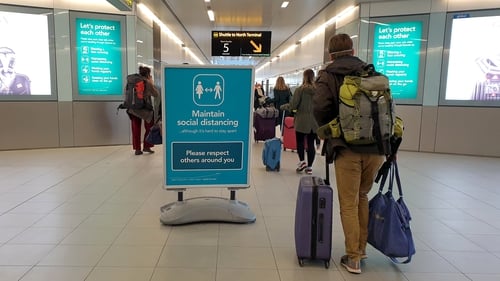Can Travel Bans Really Stop the Spread of Coronavirus Variants? Experts Are Skeptical
Can Travel Bans Really Stop the Spread of Coronavirus Variants? Experts Are Skeptical
It isn’t clear how widely the new variants are already circulating. So the latest moves by countries to bar international travelers may once again be too little, too late.
LONDON — As nation after nation rushed this week to close their borders with Britain, the moves brought back memories of the way the world reacted after the coronavirus first emerged broadly in the spring. Most of those initial travel prohibitions came too late, put in place after the virus had already seeded itself in communities far and wide.
This time, with countries trying to stop the spread of a new, possibly more contagious coronavirus variant identified by Britain, it may also be too late. It is not known how widely the variant is already circulating, experts say, and the bans threaten to cause more economic and emotional hardship as the toll wrought by the virus continues to grow.

Can Travel Bans Really Stop the Spread of Coronavirus Variants? Experts Are Skeptical
“It is idiotic” was the blunt assessment of Dr. Peter Kremsner, the director of Tübingen University Hospital in Germany. “If this mutant was only on the island, only then does it make sense to close the borders to England, Scotland and Wales. But if it has spread, then we have to combat the new mutant everywhere.”
He noted that the scientific understanding of the mutation was limited, and its dangers unclear, and described as naïve the notion that the variant was not already spreading widely outside Britain.
Also, Britain has some of the most sophisticated genomic surveillance efforts in the world, which allowed scientists there to discover the variant when it might have gone unnoticed elsewhere, experts said.
With growing calls for the United States to join the dozens of nations imposing bans on travel from Britain, Dr. Anthony Fauci, America’s top infectious disease expert, urged caution, saying there was a good chance the variant was already there.







